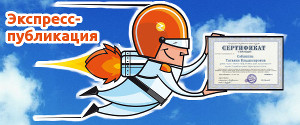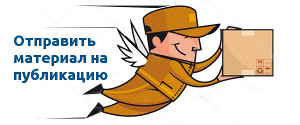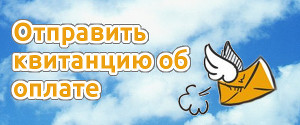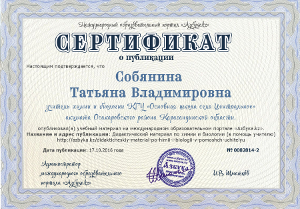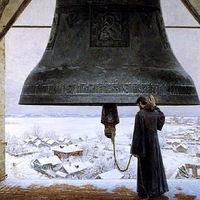Extracurricular activities in public schools in Aktobe
|
Маханова Аделия Мерекеевна ученица 11 класса, Назарбаев Интеллектуальная школа г. Актобе, Казахстан |
Abstract
The article shows that Aktobe schools have a problem of the level of quality and effectiveness of extracurricular activities. Information was collected through a survey among more than 100 participants without age restrictions and through publications connected with topics. The conclusion of the article provides with the ways of solving the problem of increasing the efficiency of extracurricular classes in Aktobe public schools.
Статья показывает, что в актюбинских школах существует проблема уровня качества и эффективности внешкольных занятий. Информация была собрана путем опроса более 100 участников без возрастных ограничений и публикаций, связанных с темой. В заключении статьи изложены пути решения проблемы повышения эффективности внешкольных занятий в актюбинских государственных школах.
Мақала Ақтөбе мектептерінде үйірмелердің сапасы мен тиімділігі деңгейінде мәселелер бар екенін көрсетеді. Ақпарат 100-ден астам қатысушылардың арасында жас шектеулерінсіз сауалнама жүргізу арқылы және тақырыптарға байланысты басылымдар арқылы жиналды. Мақаланың қорытындысында Ақтөбе мемлекеттік мектептеріндегі үйірмелердің тиімділігін арттыру мәселесін шешу жолдары қарастырылған.
Key words: Aktobe, extracurricular activities, efficiency, public schools, students.
Introduction
High school is the time in a student’s life to experience various opportunities that can provide a mental, physical and social experience for life. School employees are trying to attract attention and encourage students for participating in activities, as experts say that courses are directly related to the child’s academic performance. A child who does not do anything after school is more likely to have low school performance. While a student attending activities excels in almost all subjects. But the most important question is how courses influence learning and what are the conditions of extra classes in public schools of Aktobe.
In 2019 were an experiment where two group of students were surveyed about their academic performance. Half of students attend extracurricular activities, another half not (Furda, Mark; Shuleski, & Michael, 2019). The results were obvious. Those who participates in courses have high bands than who don’t.
The main purpose of extraclassroom activities is to put skills into practice. For example, volleyball sections. They are directly related to the lessons of physics, since they provide knowledge on determining the trajectory of the ball, the force that needs to be applied so that the ball reaches the opponent’s field and so on. In physics lessons, students mainly get information on topics, calculate different tasks. This can be applied to all items. Thus, children who attend extracurricular activities better learn the theory, putting it into practice.
This topic was not chosen by chance, as recently in Aktobe there are more and more sections, courses where parents send their children. Most importantly, is to find out if they are satisfied with them, how they would estimate the work of the courses, and so on. As mentioned earlier, each school has its own courses. For example, in the NIS of Aktobe there are 22 sections, to which students go in addition to compulsory lessons. Comparing NIS and secondary schools, it can be noted that NIS students are more busy than students from other schools, because classes last from morning to evening. Despite this, students also attend extra classes. This lifestyle helps keep the brain in good shape.
According to the latest news, in Aktobe, the introduction of additional courses in secondary schools is actively developing. Obviously, they will not be as effective as courses in special institutions, but public schools are also for children from low-income families can receive education there. Such children have a very low probability of visiting those special educational places, because the price there is very high. Therefore, the school helps him to reveal his talent and open the way to a new life.
Methods
For this research work on the topic of extracurricular activities in Aktobe, were used several methods of collecting information. Both primary and secondary information was used, which were supplemented from various sources, so the probability of incorrect data is extremely low. Various working methods were used to improve the quality of the project and to obtain clear results.
Background information was used first. The problem of extracurricular courses is one of the problems that have become relevant recently, so there was a lot of fresh information that helps to get accurate information.
To avoid the problems of incorrect information, were used globally recognized sites. For example, the Kappa Omicron Nu site was one of the most useful and frequently used sites in the project, since the information in this source is reliable and up-to-date. As for reliability, this site is organizational. In writing this project, the RAVEN method was used, with the help of which only verified information is used in it.
This project needed a survey, that is, a quantitative research method was used. The survey was conducted using questionnaires. Respondents were given closed and open-ended questions.
Using secondary sources, was created a list of questions for survey which consisted of 8 questions, where 7 questions were multiple choice answers and 1 open-ended question. Questions with a choice of answers were aimed at finding out the general opinion about extracurricular activities. Also, their condition in the city, the impact on academic performance, and so on. The only open-ended question was to get an answer to the previous question about the price of courses, that is, should they be free or not.
The survey was aimed at receiving answers from students of NIS and public schools, teachers and workers from other fields. Based on what position the respondents occupy, the age can be assumed: from 13 to 45+. This range was not chosen by chance. Students are more aware of the topic of courses, as they themselves go to them. Teachers may be the ones who conduct these classes. And the third is the workers. They had an average age, so they have an idea of the circles, since they are in contact with children, etc.
As a result, several problems arose during the collection of information, but despite this, solutions were found. Firstly, a few days after sending a message with a request to pass a survey to the mail of students of the NIS Aktobe, only a few people passed the survey. The solution to this problem was to send the survey to chat rooms, where there were mainly students from secondary schools and NIS (some 11 classes), teachers and workers. Secondly, the incomprehensibility of some answers to open-ended questions. Answers were accepted in three languages, so there were answers in both Russian, Kazakh and English. The answers written in the last two languages were not entirely clear due to fuzzy wording. The solution to this problem is to accept an approximate response from the respondent.
Results
The survey has become an important part of the project, because due to it, relevant and useful data were obtained.
Considering this problem as a whole, it can be noted that 68.6% of Aktobe residents believe that additional courses are important in the life of the child. However, a large number of respondents indicated that children did not have enough time for extracurricular activities.
Three fifths (61%) of the people surveyed indicated that they attend additional courses. The survey involved 105 people, among them were workers in other fields, teachers and students. Judging by the answers to the question, almost all students attend additional courses. This shows their involvement and ability to attend courses.
The survey asked about the impact of courses on students’ academic performance, to which 68.6% of respondents gave a positive answer. In their opinion, attending extracurricular activities affects the child’s academic performance, which confirms the words from the introduction.
An interesting point is that 20% (21 people) rated the work and the availability of additional classes at 8, which is a very good assessment (Picture 1). The maximum rate gave 12.4% (13 people) of respondents. The lowest rating was given by 4 people (3.8%). It is likely that some schools do not meet people’s expectations or they have their own reasons. Overall, respondents gave good marks. This suggests that the development of additional courses in Aktobe is successful.
Picture 1
The next question was related to the cost of the courses. According to 84.8% of respondents, courses should be free (Picture 2). However, according to the remaining 15.2% (16 people), they must pay for the work of the teacher who leads the courses because any work must be paid. The reasons why the respondents answered this can be seen in the next question.
Picture 2
To the question «Why?» 105 responses were received. Here, the answers can be divided into two categories. The first is those who answered that extracurricular activities should be free. Below are the most suitable answers:
- Education should be accessible to all citizens of the city;
- Not everyone has the opportunity to go to paid courses;
- Children from low-income families cannot afford to go to extraclasses;
- There would be more interested students.
The second category is people who answered that courses should be paid. Below are the most popular answers:
- Any work must be paid;
- In the free courses they teach the child not exactly, so he may not understand;
- Children take courses more seriously.
Despite the answers, which were divided into two types, there is a third type that supports both sides: those courses should be made partly public. According to the respondent, the government should pay 50% of the amount, because 10-30 thousand tenge for courses are expensive and families with 3-4 children will not be able to pay.
As mentioned earlier, circles play an important role in a child’s life. 93 people (88.6%) agree with this statement. About 10% are neutral to circles. Presumably, they and another 2% of people who believe that courses are not important do not attend courses because of the reasons suggested in the last question.
In the question: «Why not everyone can attend extra courses?» there were 5 possible answers, one of which is the individual response of the respondent (Picture 3). Answer options: high price, not interesting, lack of types and lack of time. 60 people believe that the main reason is lack of time, which is partly true. The school program is heavily loaded due to the transition to a new grading system and the addition of summative assessments for units and terms. High school students are loaded with homework because in the future they will pass exams. The second reason is the high price. This option was chosen 54 times. Each school is based on teacher qualifications. If the courses are led by a highly qualified teacher, then the price will be higher, but secondary schools should consider the fact that not everyone has the opportunity for this activities.
Picture 3
Conclusion
Based on research questions, the following conclusions can be drawn:
- What are the reasons that not all students of public schools are able to attend extracurricular activities?
Additional classes are held outside school hours. Junior classes manage to attend classes because they are free after school. They are not given a huge amount of homework, while the schedule of students in middle and high schools is planned for several weeks. Therefore, the main reason that not all students attend classes is a lack of time. At the same time, there is another reason is a high price because these are additional classes for which teachers may not be paid if it is conducted for free by government. In this situation, it is beneficial for students, as they gain knowledges, but not beneficial for teachers, as they give their time irrevocably.
- What is the condition of extracurricular courses in ordinary places of study?
Judging by the fact that most people evaluate the work of additional courses at almost the maximum, parents can assume that in public schools all the conditions for additional courses are created. But in schools, usually, a small choice of activities. For example, chess, mental mathematics, dancing, volleyball, basketball. Usually, these lessons are taught by ordinary teachers, for example, physical education teachers give lessons in volleyball or basketball. In older secondary schools, there is no high-quality and new equipment, while new schools built later than 2015 are equipped with everything necessary.
- How attending extracurricular courses affect on academic performance?
Academic performance depends primarily on the student’s desire to learn. Many parents, so that their children do not spend time in vain, from an early age give them to extracurricular activities where they develop and use these skills in the learning process. Consequently, attending courses has a positive effect on bands at school with what most respondents agree.
Pupils at school receive theoretical knowledge in various subjects. Rarely when they use them in practice. On extra classes based on theory, students practice. In the future, having understood how to apply theory in practice, students begin to have a more positive attitude towards lessons at school. The objects will be given easier. The result can be a good exam score.
Extra courses play an important role in the life of every child. Firstly, they have a good effect on academic performance. Secondly, it helps to determine the future profession, because many teenagers who do not go to activities and do not have a hobby, do not know whom they will work in the future. Thirdly, courses develop various qualities necessary in the future. For example, leadership qualities, attention, memory, analytical mindset and so on. Every student of public school should have an opportunity to attend extra classes because the country needs well-rounded people in the future.
The work of extracurricular activities in public schools can be improved by considering prices. It means that the price should depend on family’s living conditions. |If there are 4 or more children, courses should be free. If a family can afford to pay, they should pay. The government should consider payment for families who have children with disabilities. For all children from that family attending extra classes should be free.
Acknowledgements
I thank my GPPW teacher Zhaulbayev A. Zh. and all survey participants.
References
Furda, Mark; Shuleski, & Michael (2019). The Impact of Extracurriculars on Academic Performance and School Perception. Excellence in Education Journal, v8 n1 p 64-90. Retrieved from https://web.b.ebscohost.com/ehost/detail/detail?vid=0&sid=518a9d84-afaa-40ae-b030-914843bdc52e%40sessionmgr102&bdata=JnNpdGU9ZWhvc3QtbGl2ZQ%3d%3d#AN=EJ1208711&db=eric
- 7460 просмотров







